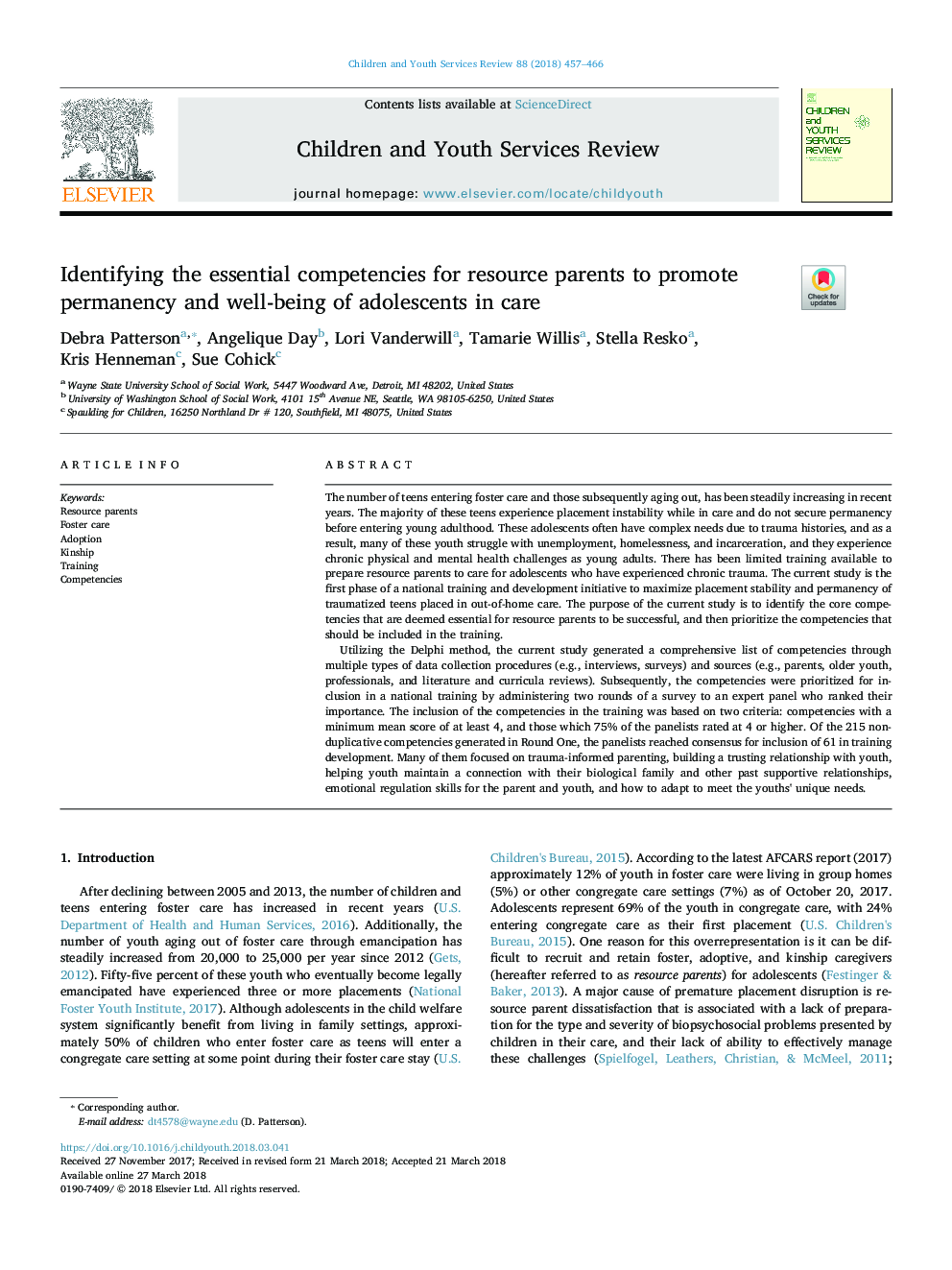| Article ID | Journal | Published Year | Pages | File Type |
|---|---|---|---|---|
| 6833234 | Children and Youth Services Review | 2018 | 10 Pages |
Abstract
Utilizing the Delphi method, the current study generated a comprehensive list of competencies through multiple types of data collection procedures (e.g., interviews, surveys) and sources (e.g., parents, older youth, professionals, and literature and curricula reviews). Subsequently, the competencies were prioritized for inclusion in a national training by administering two rounds of a survey to an expert panel who ranked their importance. The inclusion of the competencies in the training was based on two criteria: competencies with a minimum mean score of at least 4, and those which 75% of the panelists rated at 4 or higher. Of the 215 non-duplicative competencies generated in Round One, the panelists reached consensus for inclusion of 61 in training development. Many of them focused on trauma-informed parenting, building a trusting relationship with youth, helping youth maintain a connection with their biological family and other past supportive relationships, emotional regulation skills for the parent and youth, and how to adapt to meet the youths' unique needs.
Related Topics
Health Sciences
Medicine and Dentistry
Perinatology, Pediatrics and Child Health
Authors
Debra Patterson, Angelique Day, Lori Vanderwill, Tamarie Willis, Stella Resko, Kris Henneman, Sue Cohick,
